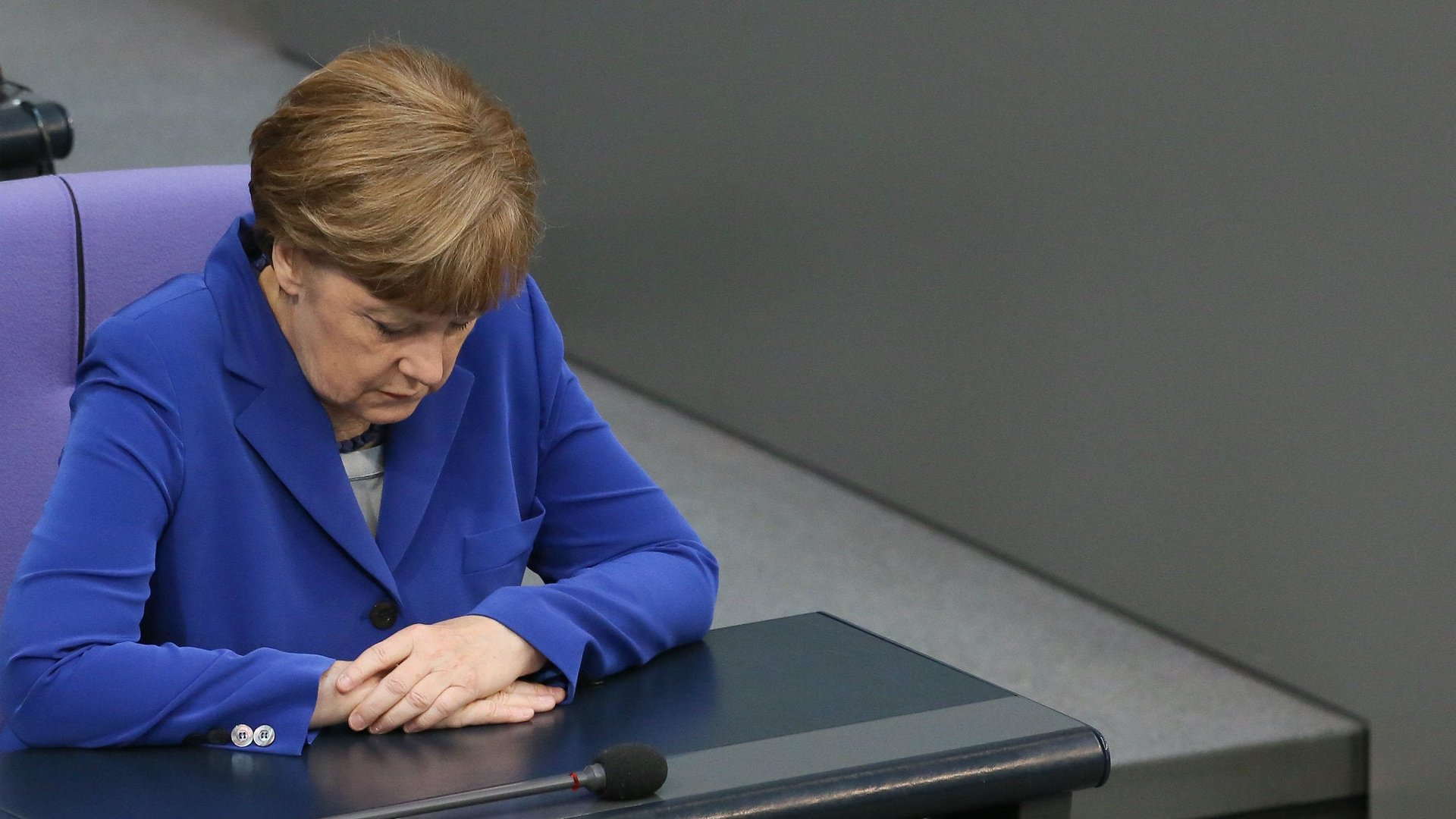Young Germans are using “Merkel” as a verb, and it means nothing
German chancellor Angela Merkel enjoys some of the highest public approval of any major world leader—67% of Germans are pleased with her stewardship at last count. This is all the more remarkable given how many other leaders have come and gone since she rose to power in 2005, turfed out by voters amid the economic turmoil of the global financial crisis and euro-zone debt drama.


German chancellor Angela Merkel enjoys some of the highest public approval of any major world leader—67% of Germans are pleased with her stewardship at last count. This is all the more remarkable given how many other leaders have come and gone since she rose to power in 2005, turfed out by voters amid the economic turmoil of the global financial crisis and euro-zone debt drama.
Some of Merkel’s supporters have taken to calling her “Mutti” (mummy), inspired by her calm and composed demeanor in the face of Germany’s many challenges. The typical bombast and bluster of politics is not for the 61-year-old from the former East Germany, and the people love her for it.
But this love is not unconditional. Merkel’s understated, deliberate, and consensus-based style strikes some as excessively cautious, enigmatic, and inscrutable. When dictionary publisher Langenscheidt opened its annual contest for the Youth Word of the Year, the verb “to Merkel” shot to the top of the voting, as reported by NPR News.
In the emerging slang, to Merkel is “to do nothing, make no decisions, issue no statements.”

The word is currently trouncing other contenders like “Tinderella” (a woman addicted to online dating sites) and “Smombie” (a person who acts like a zombie when enthralled by a smartphone), among others. The winning word will be determined later this year.
Merkel has recently come in for criticism for her perceived delay in reacting to violent protests by neo-Nazi groups at shelters for asylum seekers. During the negotiations over Greece’s latest bailout, she also largely faded into the background, delegating hardline finance minister Wolfgang Schäuble to lead the talks.
But at the same time, the chancellor’s steely resolve served her well in leading the EU’s response to Russian aggression in Ukraine. Her decision this week to relax asylum rules for refugees from Syria has produced an outpouring of praise.
Recent polls suggest that the chancellor’s party would win an outright majority in parliament for the first time since the 1960s if elections were held today. Merkel herself is rumored to be up for running for a fourth term in the next federal election in 2017. (Naturally, she has said little about the possibility of running again.)
Seeing your name used as a byword for inaction may sting a little, but it’s hardly the first time Merkel has been the focus of a meme. From her trademark hand gesture to dress sense, Germans like to tease the chancellor almost as much as they like to vote for her.